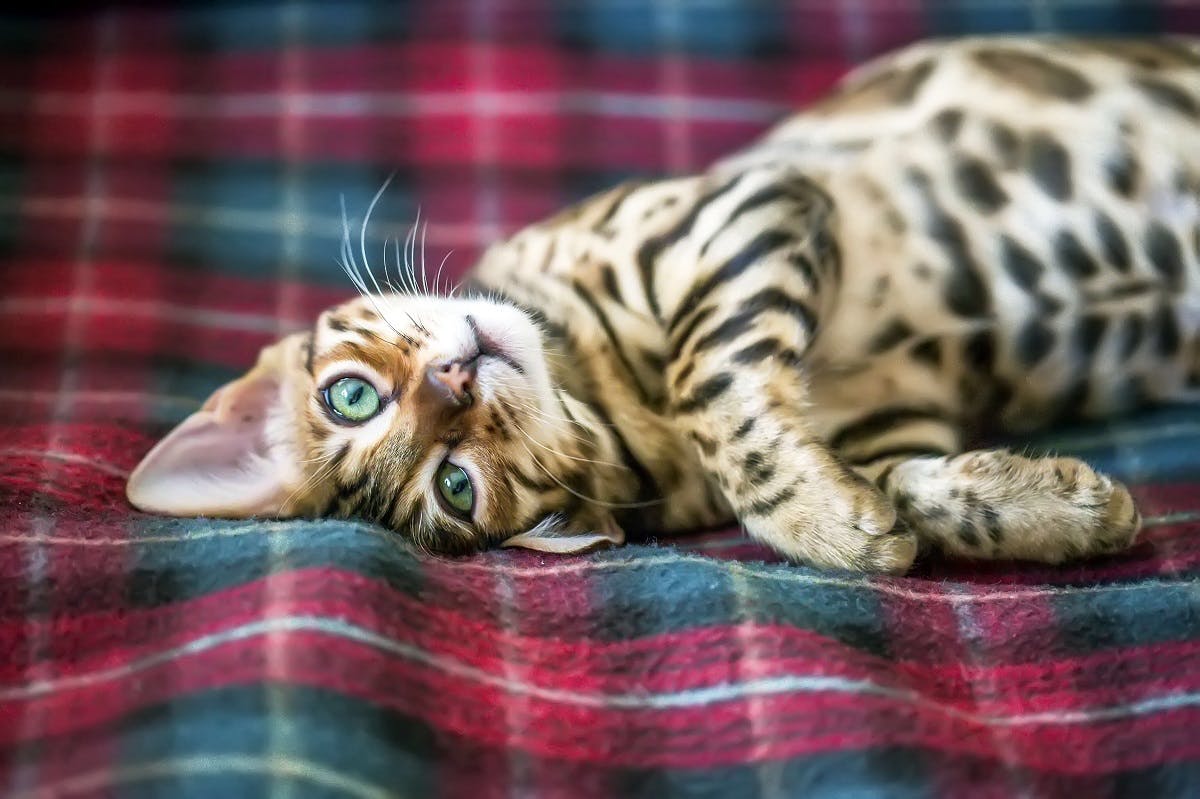Your kitten may love to play. If you’ve recently brought home a kitten, you may notice your kitten’s energy level is higher than expected. For example, they may leap onto objects and furniture while they explore their new home. Some cat owners may wonder is this normal behavior and ask themselves, “when do kittens calm down?” We sat down with Trupanion veterinarian Dr. Sarah Nold to learn more about kitten behavior and energy as they develop, and tips for kitten enrichment.
When do kittens calm down?

When you think of energy, you may often think of puppies. But don’t disregard felines – as your kitten grows, they may exhibit different levels of energy. Nold points out some differences between puppies and kittens below.
“Cats are not small dogs. In general, we don’t use ‘calm down’ as a term for cats. Unlike dogs, your cat may place more importance on the security of their home than attachments to people or other cats. In other words, they may tend to be more solitary.”
A kitten may have energy while they learn, grown, and explore. Naturally, that’s to be expected from your feline.
Also, it’s important for your kitten or adult cat to feel comfortable at home. Consider creating a cat-friendly space that gives your best friend a chance to roam and get that energy out in a safe space.
Kitten behaviour stages: what to expect
Your kitten develops at a rapid rate. You may find it’s hard to keep up with them on a daily basis. They certainly are curious and may get into things quickly. Nold breaks down some key developmental stages in your kitten’s growth.
“Cats are evolutionarily nocturnal. When they’re in your home, you ask them to live according to your daytime schedules. Kittens begin social learning as early as two weeks of age. Also, kittens play, eat, and rest similar to a toddler. Social play usually peaks at about 3 months of age. As they get to 4-9 months, they hit their teenage years. They may start to feel their natural predatory selves and the need to begin “hunt” and scavenge. They may start bringing toys, sleeping more during the day, and playing more in the evenings. From 9-14 months, they may grow into themselves and begin to pattern their behavior to their families. If there is another cat in the household to teach them, this process can be shorter.”
While development happens in stages, every kitten is different. Some kitten and adult cats may develop quicker than others, and that is okay.
If you have any concerns about your cat’s development or behavior, talk with your veterinarian. They can pinpoint any trouble areas and recommend a treatment plan.

Kitten behavior
Although you may feel a cat scratching or a cat biting as a negative behavior, it may just be a cat being a cat. Nold points out when to take notice of certain behaviors.
“Normal behavior may include scratching, which helps with your cat marking their territory and claw maintenance. You may see a cat scratching as bad behavior, especially if it happens to be on your favorite couch. Anything that threatens your cat’s security may cause stress and lead to behavior changes. In fact, cats don’t “calm down.”They’re who they are; some cats are playful and some are lazy. Enrichment may help cats express their normal predatory behaviors and help prevent boredom.”
Kitten enrichment 101
Enrichment may provide mental, physical, and emotional stimulation for your cat. In fact, a cat-friendly home that includes enrichment may help curb any unwanted behaviors.
Cat enrichment may come in many forms, consider the following:
- Scratching posts
- Furniture, like cat trees and cat towers
- Window sills and wall perches
- Catio
- Homemade cat toys
- Interactive play with a box
Nold adds, “enrichment can also redirect normal scratching behavior from furniture to more appropriate furniture, like a cat scratching post. As a result, enrichment may help alleviate stress.”
Also, interactive play is a great way to bond with your cat and help them settle into their new home. Further, a break in your day to play with your cat may help with your stress as well.

When do kittens calm down? It depends on your cat
Sooner than you know, your kitten will be an adult cat. Kittens grow up fast, so take the time to interact, play and enjoy that time together. Some kittens may just be more energetic than others.
But by notating your concerns, talking with your veterinarian and working together, your kitten may be on the way to a balanced and calmer future.

